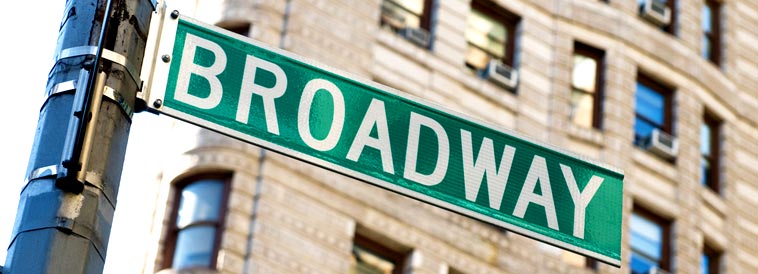 When Harry Met Sally… is well within in my top five movies of all time. I don’t think this is just because it hit me at the exact right age (movies are much more influential when you see them as a teen, don’t you think?). It’s not because it covered new territory (there were other New York-based romantic comedies, and arguably the movie is merely a woman’s spin on a Woody Allen film). But the territory it did cover was done in a such a completely new way, with such a different and fresh perspective. And when that is done well, it can be transcendent. With the Nora Ephron-penned When Harry Met Sally…, that’s exactly what happened.
When Harry Met Sally… is well within in my top five movies of all time. I don’t think this is just because it hit me at the exact right age (movies are much more influential when you see them as a teen, don’t you think?). It’s not because it covered new territory (there were other New York-based romantic comedies, and arguably the movie is merely a woman’s spin on a Woody Allen film). But the territory it did cover was done in a such a completely new way, with such a different and fresh perspective. And when that is done well, it can be transcendent. With the Nora Ephron-penned When Harry Met Sally…, that’s exactly what happened.
I obviously didn’t know Ms. Ephron personally. But her impact on my life was significant nonetheless. She made New York seem so glamorous and smart. Between this movie and The Days and Nights of Molly Dodd, which was on TV around the same time, I thought the Upper West Side was the home of the most intelligent, wry, interesting women on earth, people who constantly had quips, comebacks and dinner parties. I didn’t dare admit to imagining I’d someday be in their midst.
Truthfully, I enjoyed You’ve Got Mail and Sleepless in Seattle as much as the next guy, but I found her to be a fairly self-indulgent director, mostly in terms of editing, not dialogue. (I think the reason WHMS is so sharp is because of the crisp direction from Rob Reiner, who keeps the pace moving. Same for Mike Nichols’s direction of Heartburn. Compare those to her other movies’ draggy last half-hours, and all the parts of Julie and Julia when Meryl Streep wasn’t onscreen.)
But, oh, her writing. Her perspective was singular and trend-setting. I absolutely loved her take on things, her biting wit, her approach to life. Hell, I even saw Imaginary Friends on Broadway (and I even came back after intermission). The woman set the bar. She upped the ante. She changed the game. She did all of those cliches, including Ginger dancing backward, and she did it with panache.
Seems I’m not the only one she charmed. The articles and obituaries I’ve read today make her sound like a pretty amazing friend and mom, as well as a talented screenwriter, essayist, director and all the rest. I saw her do a Q&A with Gail Collins at the 92nd Street Y a couple of years ago, and she made everyone in the audience feel like we were gathered around her kitchen table. She was a gifted woman. A breed apart in terms of language, observation and truth-telling. I feel for her family. I can’t believe she’s gone; they must be out of their minds with disbelief.
In remembrance, I thought I’d cobble together some of the amazing dialogue from this incredible movie. I’m not providing context for these and they are in no particular order. Taken together, they show just how much richness was in that screenplay. I consider it her opus. She will be missed.
You’re right, you’re right. I know you’re right.
(I don’t even know how many times my friend Molly and I have said this to each other over the years.)
It’s amazing. You look like a normal person but actually you are the angel of death.
I had these days-of-the-week underpants. He was all suspicious. Where was Sunday? Where had I left Sunday? And I told him, and he didn’t believe me. (Harry: What?!) They don’t make Sunday. (Harry: Why not?) Because of God.
You’re the worst kind; you’re high maintenance but you think you’re low maintenance.
Draw something resembling anything. (Later) “Baby talk”? That’s not a saying. (Harry: Oh, but “baby fish mouth” is sweeping the nation?)
You don’t always have to express every emotion you’re having every moment you’re having it.
You’re saying I’m having sex with these men without my knowledge?
Waiter, there is too much pepper on my paprikash. But I would be proud to partake of your pecan pie.
No, no, you did not have great sex with Sheldon. A Sheldon can do your income taxes. If you need a root canal, Sheldon’s your man.
I’d like the pie heated and I don’t want the ice cream on top, I want it on the side, and I’d like strawberry instead of vanilla if you have it, if not, then no ice cream, just whipped cream, but only if it’s real; if it’s out of the can, then nothing. (Waitress: Not even the pie?) Sally Albright: No, I want the pie, but then not heated.
Is one of us supposed to be a dog in this scenario? (Harry: Yes.) Who is the dog? (Harry: You are.) I am?! I am the dog. I am the dog.
(Again, Molly and I spent countless hours with this dialogue. In fact, he is the dog. To him, it’s been seven years. That makes him the dog! Much debated!)
The fact that you’re not answering leads me to believe you’re either: A) not at home; B) home but don’t want to talk to me; or C) home, desperately want to talk to me, but trapped under something heavy. If it’s either A) or C), please call me back.
Everybody thinks they have good taste and a sense of humor.
No one has ever quoted me back to me before.
When I buy a new book, I read the last page first. That way, in case I die before I finish, I know how it ends. That, my friend, is a dark side.
No, no, no, I drove him away! And I’m gonna be 40! (Harry: When?) Sally: Someday!
Someone is staring at you in Personal Growth.
I thought he was crossing the room to talk to my friend Maxine, because people were always crossing rooms to talk to Maxine.
I’m Ben Small, of the Coney Island Smalls.
This stupid, wagon wheel, Roy Rogers, garage sale coffee table!

Read More
 Amazon is opening brick and mortar stores! “What a world, what a world!” to quote the melting Wicked Witch of the West.
Amazon is opening brick and mortar stores! “What a world, what a world!” to quote the melting Wicked Witch of the West.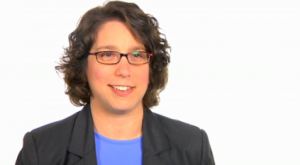
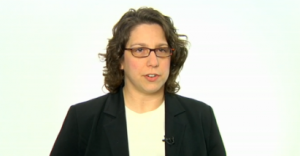
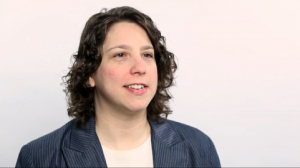

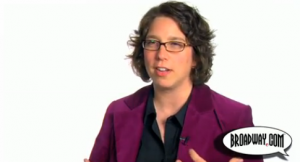

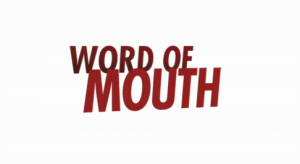 Well, my debut of sorts. I’ve recently had the pleasure of being “cast” as part of the
Well, my debut of sorts. I’ve recently had the pleasure of being “cast” as part of the 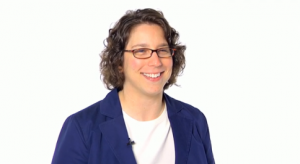
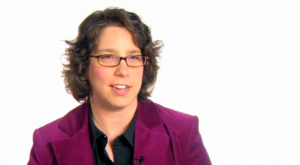
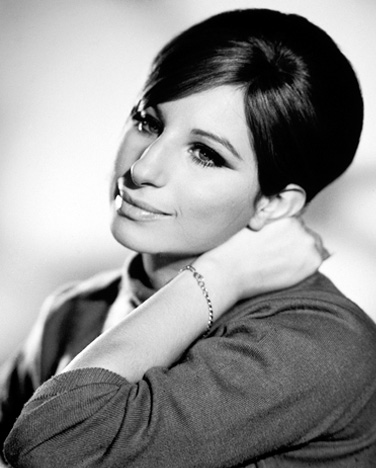
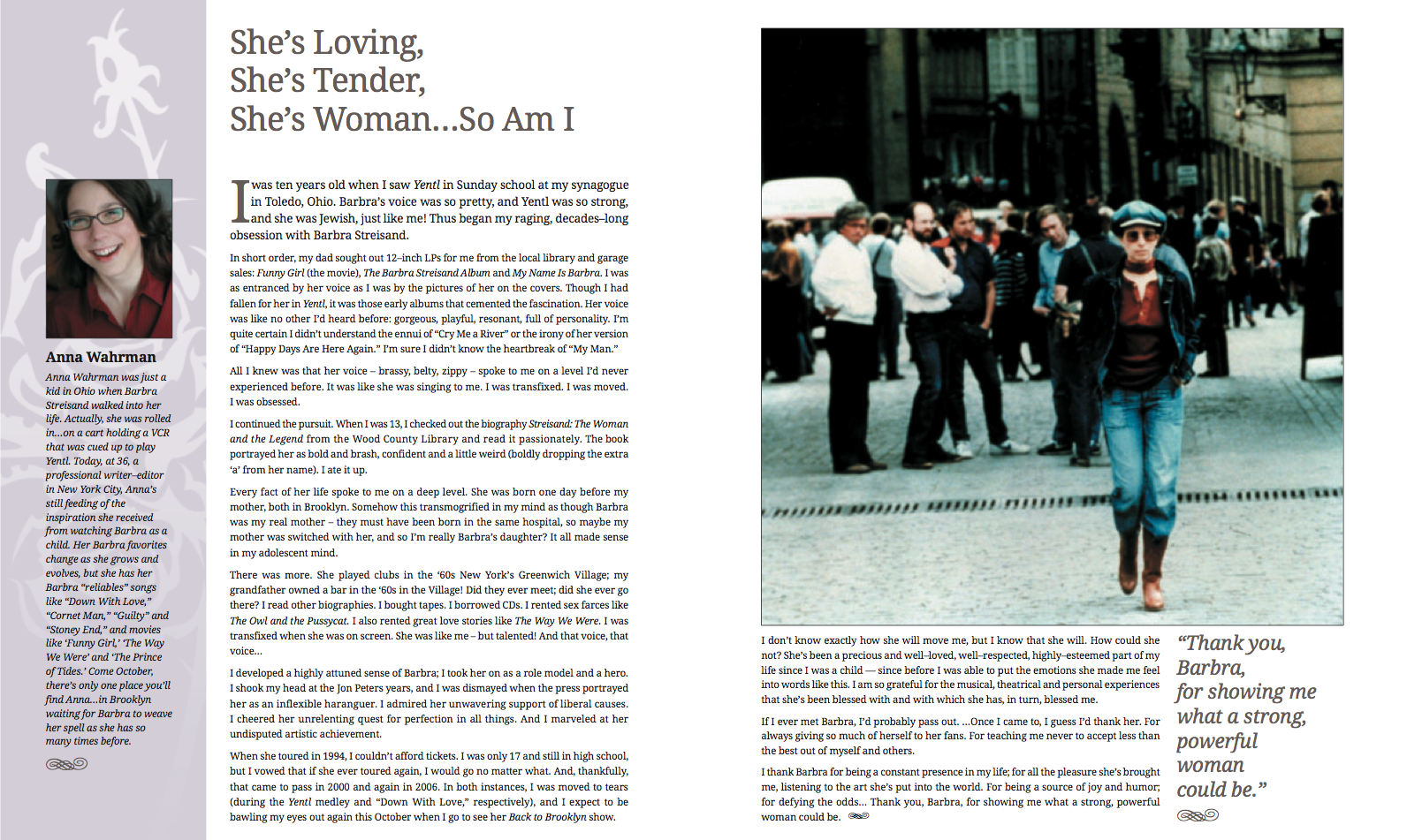
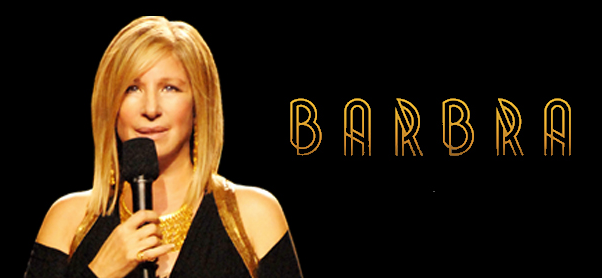
 When Harry Met Sally… is well within in my top five movies of all time. I don’t think this is just because it hit me at the exact right age (movies are much more influential when you see them as a teen, don’t you think?). It’s not because it covered new territory (there were other New York-based romantic comedies, and arguably the movie is merely a woman’s spin on a Woody Allen film). But the territory it did cover was done in a such a completely new way, with such a different and fresh perspective. And when that is done well, it can be transcendent. With the Nora Ephron-penned When Harry Met Sally…, that’s exactly what happened.
When Harry Met Sally… is well within in my top five movies of all time. I don’t think this is just because it hit me at the exact right age (movies are much more influential when you see them as a teen, don’t you think?). It’s not because it covered new territory (there were other New York-based romantic comedies, and arguably the movie is merely a woman’s spin on a Woody Allen film). But the territory it did cover was done in a such a completely new way, with such a different and fresh perspective. And when that is done well, it can be transcendent. With the Nora Ephron-penned When Harry Met Sally…, that’s exactly what happened.
